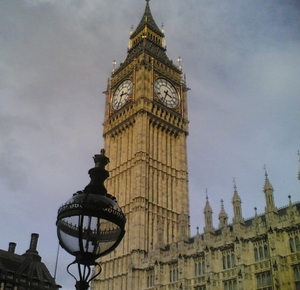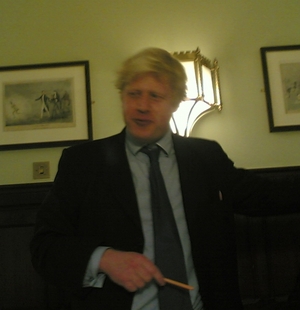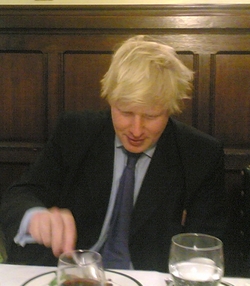We are developing the social individualist meta-context for the future. From the very serious to the extremely frivolous... lets see what is on the mind of the Samizdata people.
Samizdata, derived from Samizdat /n. - a system of clandestine publication of banned literature in the USSR [Russ.,= self-publishing house]
|
Though the pictures seem pretty, as a Christian, I probably would not care for the new book by Gerhard Haderer, an Austrian cartoonist. He depicts Christ as a “binge-drinking friend of Jimi Hendrix and naked surfer high on cannabis.” What daring iconoclasm! In 1905, maybe. In 2005, apart from six nonagerian nuns living in enclosed orders and a few hobby-protesters, nobody gives a monkeys.
Yesterday if anyone had made the slightest suggestion that the furore that results from writing such a book qualified a man to be regarded as some sort of martyr for free speech, I’d have retorted that the “furore” had probably been budgeted for to the last euro by the publishers. “Regrettably, Herr Haderer, the market for Christian outrage is not what it was, and we cannot agree to your suggested advance.” Or I’d have suggested that if he wants to play martyr he could try it with the Muslims, who are more likely to enter into the spirit of the game.
But by the holy bowels of Jimi Hendrix, the poor little poseur really is in danger of arrest. And do you know why? Because of the European arrest warrant, that’s why. An Austrian cartoonist and writer faces extradition to Greece (Greece: why does that not surprise me?) for something he wrote in Austria. I assume that Austria has no law, or dead-letter law, against blasphemy. So he wrote something that was legal in Austria but not in Greece, and now he faces extradition to Greece. He did not even know his wretched book had been published in Greece.
I found this via Public Interest. Peter Briffa points out that when this law was introduced much was said by its sponsors about extraditing foreign criminals to Britain … and very little about the extradition of British people to foreign countries for “crimes” that might well not be crimes at all in Britain.
Perhaps some legally knowledgeable reader can tell me if there is anything at all to stop this happening to, for instance, a British Samizdata contributor, if the authorities in some foreign capital should take a dislike to something he or she had written.
Some readers may have heard of the Institute for Justice, a U.S. organisation which fights the legal battles of property owners resisting the odious power of what is called eminent domain. Eminent domain powers, which were originally designed to give governments the ability to seize private property to build facilities for so-called “public use” like an airforce runway, prison or road, have also been used by said governments to build things like condos purely in order to boost tax revenues. It goes without saying that such a power is a powerful force of corruption, since a large property developer who wants to build a supermarket or whatever can get his political chums to use ED to kick small businessmen and homeowners out of their property. The politicians get lots of campaign contributions. The whole business stinks, and flagrantly abuses property rights. In any event, if the re-development of an area really made financial sense, that would be reflected in the increased prices of the houses and shops targeted for demolition, in which case the issue can be left to the market.
The Institute for Justice is, quite possibly, the most important libertarian organisation now in existence. I can also recommend the Free Space blog for regular updates on this issue and I also love the book, Defending the Undefendable, by Walter Block, on the same subject.
Long ago, when I was “reading architecture” at Cambridge University (it turned out that you had to do more to architecture than merely read it if you wanted to become an architect), I remember noting the name of Japanese architect Kenzo Tange. The majority of the architectural gods we students were then offered as objects of worship turned out to be deluded fools, but Tange was, I believe, the genuine article.
And now he has died, at the age of 91. I had no idea that he had lived this long.
I think he deserved to, and that if for some reason he did not look back on his work with a sense of pride and accomplishment, he should have and was entitled to.
I know that many readers here loathe the architectural modernism that is being done now, just as they loathe the architectural modernism that was done in the sixties and seventies. But for me, there has been a sea change. Style is back. Expressiveness is back. The Great Lump style is being abandoned, and often dynamited.
If they look at these pictures, I think that at least some readers here may agree that this man was way ahead of his time. Now, modernistic buildings which look interesting rather than deadly dull, which celebrate the expressive possibilities of modern building technology instead of merely using it to erect giant blocks of boredom, are all the rage.
Tange did perpetrate quite a few concrete lumps, but on the whole, he did better than that.
How many other architects were making buildings as interesting and dramatic looking as this, in the nineteen sixties? Not many.

Personally, I have long wanted a CPU socket and PCI bus built directly into my cranium, but it has not been possible until now.
Already, though, I am getting upgrade envy. It really needs to be Socket 939 and PCI Express.
(seen in a Chinese electronics market on March 20, 2005)
While media attention is still on the Schiavo case, another legislature has been passing laws for specific individuals. In this case, the Icelandic Parliament has voted to grant citizenship to Bobby Fischer, the bizzare and deranged former Chess champion.
This act was done at the behest of supporters of Fischer, who has been imprisoned by Japanese immigration officials since July 2004 for trying to leave Japan without a valid passport. Since then, the US has been trying to extradite Fischer over his 1992 match with Boris Spassky, which, by being held in Yugoslavia, violated US sanctions.
I suspect that even if this new move is successful, the Icelandic authorities will come to regret their generosity. Fischer has a long habit of biting the hand that feeds, and Iceland may come to realise that there really is such a thing as bad publicity.
Today I heavily undermined my Samizdatista credentials by hanging around the political types. I attended a lunch for Boris Johnson’s, MP, supporters and activists from his constituency. Now, you may ask what I was doing there… well, blogosphere works in mysterious ways…
The lunch was rather pleasant and I found those I had a chance to talk to refreshingly switched on and open-minded. The shock was made bearable by copious food and wine.

The politicians’ lair Now, to the heart of the matter, Mr Boris Johnson, MP. I was most intrigued, after many months of Tory bashing on this blog, to find myself on the inside and on the receiving end, so to speak. Although the House of Commons is not an unknown territory, this occasion was different as I went curious to meet the one Tory that seems to break the ranks and is not afraid to mention the notion that dare not speak its name in current politics – freedom.

Boris, the Strangely Illuminated Statesman The speech Mr Johnson gave at the end of the lunch, before he had to dash off to his statesmanly duties, was… excellent. This is what he had to say (reconstituted from my, by now largely unreadable notes, so please give the man a break and challenge me on the detail):
There were three points to note. The first was that freedom is important and needs to be seen as an end in itself, to stop its erosion for other political ends. The Labour government has been spending an increasing amount of taxpayers’ money while reducing their freedom. This is bad for the society. The result is an even more intrusive state under Labour. [So far, so good.]
Boris called for a new style of government, which would get that freedom back. He mentioned a rather scary statistic, the size of the public sector is now at the same level as in the 1979 – when Thatcher came in, ending an era of rampant and shameless socialism in Britain – and is 739,000 people working for the central government (excluding local government and other public bodies). By the time Labour came in the number had shrunk to 430,000. The Tories’ agenda is to shrink the size of the state again.
The second point was democracy. Democracy means that the Tories get rid of unelected regional authorities and the whole tier of government that has not been approved by the democratic processes. The term constitutional non-sense was mentioned in the context of the health secretary having no say about health.
The third issue was taxpayer value. Huge quantities of taxpayer money have been lavished on the public sector and on socially useless projects. New approach to government is needed. [I especially like this one – it was mentioned twice.] Mr Johnson got rather animated when he called for a stop of the ongoing transfer of wealth from the productive sector of the economy to the non-productive. I hope this was a go at wealth redistribution, as his moved on to recommend that the Tories should the party of lower taxation.

Mr Johnson understands that the size of the cake is more important that the equal size of the cake portions
There was the usual pep talk before the elections, which did not come out too badly as it was based on realistic expectations and the belief that Tony Blair should be expelled from the office, which is impossible to disagree with.
More issues were discussed, which are either too local or related to the constituency and as such would probably bore the pants off our ‘global’ readership. All in all, talking to Mr Johnson, one could almost believe that politics can be a way forward. They must have put something in the wine…
Due to sheer coincidence of seating arrangements I had a chance to exchange a few words with our Honourable Friend and mentioned the distinction between the state and the society that dictates so much of our ‘editorial policy’ on political engagement. It seemed to resonate and I could not help but wonder to what extent the Tory party message could coalesce around such a notion. For the record, I am not holding my breath.
I am not the world’s leading authority on what Young People Are Getting Up To These Days. Nevertheless, today I spotted what looked to me like a new hairstyle, in Charing Cross Road in central London. And, on the off chance that it really is rather new, I photographed it from the top deck of the London bus I was in at the time, for Samizdata readers to wonder or sneer at. They were a group of five Asian boys, of whom three had their hair done thus:
At least two things may be wrong with this post. First, this hairstyle may already be old hat, and Asian boys have been swanning around for years with their hair done thus. Second, so what anyway? As to the first, well, I will take that chance. But re the second question, I think that human inventiveness and individuality is always worth a respectful nod. And yes, I daresay these were indeed juvenile delinquents, but that is always where these things seem to start.
How soon before David Beckham is to be seen thus adorned? Or maybe he has already sported such a hairdo and I missed that also.
For many Americans who see the state as being the central and most important institution there is, the axis around which civil society orbits, the whole idea of ‘dual nationality’ is deeply disturbing. A person born in a different land can assimilate into civil society, adopt the mores, trappings and affectations of the place in which they now live and even accept being marked as a political subject of the government (become a citizen) but if they do not in fact repudiate being a subject of their previous home, to a statist American the question often asked is “can that person really be an American?”
I have heard people in the US say that of the many Jewish Americans who also hold Israeli passports and now increasingly that question is asked of Mexican Americans who retain ties to Mexico. Cosmopolitanism is seen as somehow dangerous and almost wicked. That dual nationality is particularly disturbing to some Americans is not surprising seeing as how the USA claims a proprietary interest in Americans nationals even if they do not live within the lands within which the US state claims sovereignty over (to the extent that even foreign people with US green cards who are not US subjects and who no longer live within US territory are still supposed to make US tax returns and incur US tax liabilities!). In most of the rest of the world, the moment your cross a national border, the nation you lived in generally looses interest in most of your economic and political activities, making dual nationality rather less emotive an issue other than in times of war between the two nations in question. Being a US ‘citizen’ is like having a big brand on your arse which stays with you regardless of where you go, making claims that US citizenship is somehow superior because it is not ‘ethnic based’ somewhat odd… it is more analogous to creating a new ethnicity, at least politically speaking, called ‘American’.
But for many, probably more who hold dual nationality, it is just a means of being able to live where they please and cross borders to places where they have friends and family without being harassed by the state’s border guards and pettifogging officials. The truth is that for the great majority of people the state is not the axis around which their life revolves and the bit of coloured cloth that flaps over them is really not a big deal.
As a ‘rootless cosmopolitan’ myself, I make no secret that I see collecting as many citizenships as possible as useful way to dilute the influence that states have over people. That does not mean I am blind to the possibility of political leaders in one country making mischief in another country by appealing to notions of ‘Volk’ or ‘La Patria’… yet political antics can be trumped by simply allowing the natural (yes, natural) process of assimilation to run its course, rather than distorting and delaying that process with crazy ‘identity politics’ which reward primitive tribalistic attitudes, and social welfare programmes that invert the traditional motivate for people to become immigrants in the first place.
Anti-liberal NGOs like War on Want and the World Development Movement are using World Water Day (today) to campaign against private investment in water infrastructure. The World Development Movement says that water privatization is: “making it less likely that clean water will ever get to the poorest people.”
Unfortunately the World Development Movement is mistaken. As Global Growth’s development economist, Paul Staines, says (pdf file):
Practical and technological requirements for huge sanitation projects on a metropolis-wide scale require the resources of big enterprises to implement them, the private sector can not only provide the capability but also the capital required. 2 billion people thirst for clean water, Western antiglobalisation NGOs who arrogantly put their ideological interest ahead of the interests of the developing world are full of **it, and if they succeed in their campaign the fast growing cities of the developing world will be as well.
Private investment in water is expanding access to clean, running water. It contrasts strongly with nationalized water systems where politically-favoured groups receive below-cost water, starving off future investment so that unfavoured groups go without. Private investment offers the best plan for increasing access to water.
Crossposted from the Globalisation Institute Blog.
I often do not see eye to eye with James Taranto but he does point out some good stories in his “Best of the Web” email newsletter. He highlighted this Drudge Report today. Drudge reports Michelle Zipp, editor of Playgirl magazine, was fired for being a Republican. It contains an e-mail from Ms. Zipp:
After your coverage of my article about coming out and voting Republican, I did receive many letters of support from fellow Republican voters, but it was not without repercussions. Criticism from the liberal left ensued. A few days after the onslaught of liberal backlash, I was released from my duties at Playgirl magazine.
After underlings expressed their disinterest of working for an outed Republican editor, I have a strong suspicion that my position was no longer valued by Playgirl executives. I also received a phone call from a leading official from Playgirl magazine, in which he stated with a laugh, “I wouldn’t have hired you if I knew you were a Republican.”
I just wanted to let you know of the fear the liberal left has about a woman with power possessing Republican views.
I would go further. The currently constituted Democratic Party is based on victimology. ‘Minorities’ must be victims. Victims must be helped. The only way to help victims is through regulation, law and massive Federal spending. If a member of a Democratically important minority breaks ranks, they are endangering the core beliefs which bind the party together. Thus that individual must be silenced or put in their proper place as a victim.
Minorities contain intelligent, hardworking and resourceful people. You can not keep them ‘down on the farm’. You can not pretend to speak for all of ‘them’ because they are not really a ‘them’. As any libertarian will tell you, there is no such thing as a Class. There are only individuals with temporarily aligned self-interests.
This is a problem for the Democrats. As soon as the underlying self-interests of their pet victim classes were met, those classes began to dissolve. The Democrats do not have an acceptance of this, let alone a plan to understand and deal with new alignments. All they can do is individually lash out against ‘class’ defectors. It solves nothing, it wins them no friends… but perhaps it makes them feel better.
Post a review of a book or other product on Amazon.com, and the information may find its way into the company’s file on you. CNET has more on Amazon having been granted a patent for a system that gathers clues from reviews about customers’ gift-giving habits in order to suggest future gifts and reminders.
Consumer advocates worry that the company’s profiling practices may have gone too far and could exploit the giving of gifts and the sense of community that customer reviews were designed to engender.
Here’s how the proposed system works, according to Amazon’s patent claim: Amazon would gather information about gift recipients, including their names, addresses and items customers send them. The system would then try to guess their gender, age and the gift-giving occasion based on the type of present, messages written in gift cards, dates gifts are ordered, items on wish lists, and commentary in related consumer reviews.
The system appears particularly geared toward people buying gifts for children, with its ability to recommend “age appropriate” gifts.
Jason Catlett, founder of Junkbusters, a consumer watchdog, said:
They are building a speculative profile on you before you even know you’re dealing with them, because someone sends you a gift.
He’s particularly dismayed by the prospect of Amazon monitoring customer reviews for marketing purposes.
Well, so am I. But I think Catlett is onto something when he says:
People will hesitate to publish reviews if they know the result is to enlarge their profile in some secret marketing database.
I have just got back from a trip to the Tate Britain art gallery at which such wonders as the works of Turner, Monet and Whistler were on display. The Turner pictures of Venice, London and the Seine Valley of northern France bowled me over, as they do every time. One stray observation: many of the pictures brought out the effect on light of heavy air pollution. Monet was a master at this, particularly in his paintings of the Houses of Parliament. Some of the Monets and Whistlers were painted in the late 19th century when London’s smog levels were notoriously bad. As an adopted Londoner I am of course delighted that the chronic air pollution which once ravaged the lungs of our forbears has been reduced. I wish our modern artists could produce something as great as Turner, though.
|
Who Are We? The Samizdata people are a bunch of sinister and heavily armed globalist illuminati who seek to infect the entire world with the values of personal liberty and several property. Amongst our many crimes is a sense of humour and the intermittent use of British spelling.
We are also a varied group made up of social individualists, classical liberals, whigs, libertarians, extropians, futurists, ‘Porcupines’, Karl Popper fetishists, recovering neo-conservatives, crazed Ayn Rand worshipers, over-caffeinated Virginia Postrel devotees, witty Frédéric Bastiat wannabes, cypherpunks, minarchists, kritarchists and wild-eyed anarcho-capitalists from Britain, North America, Australia and Europe.
|








